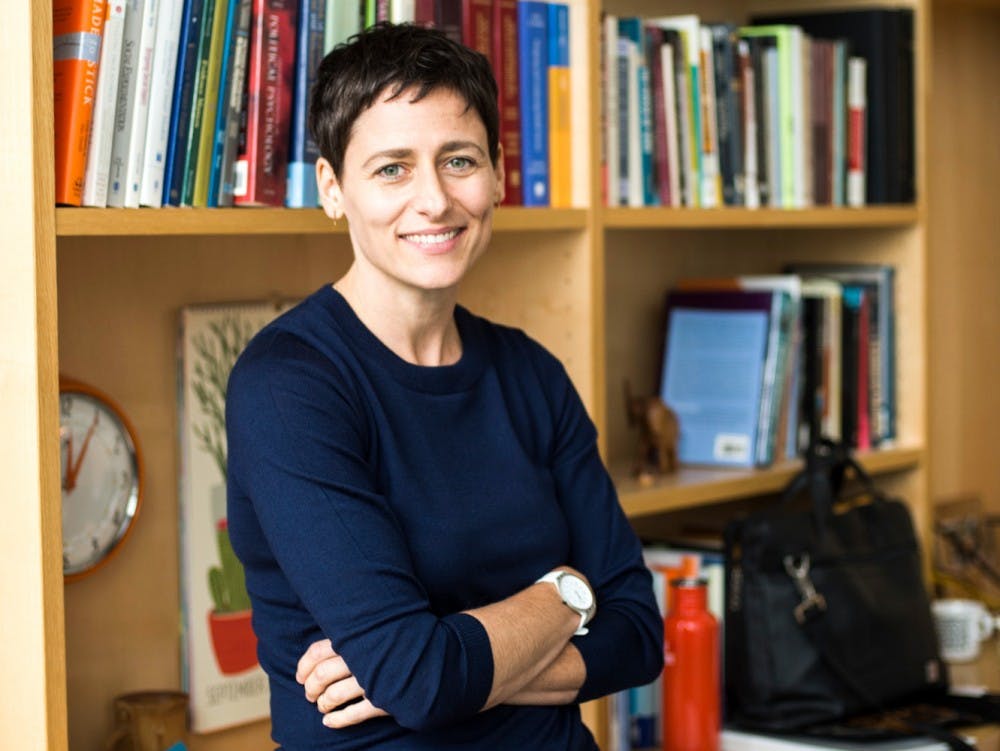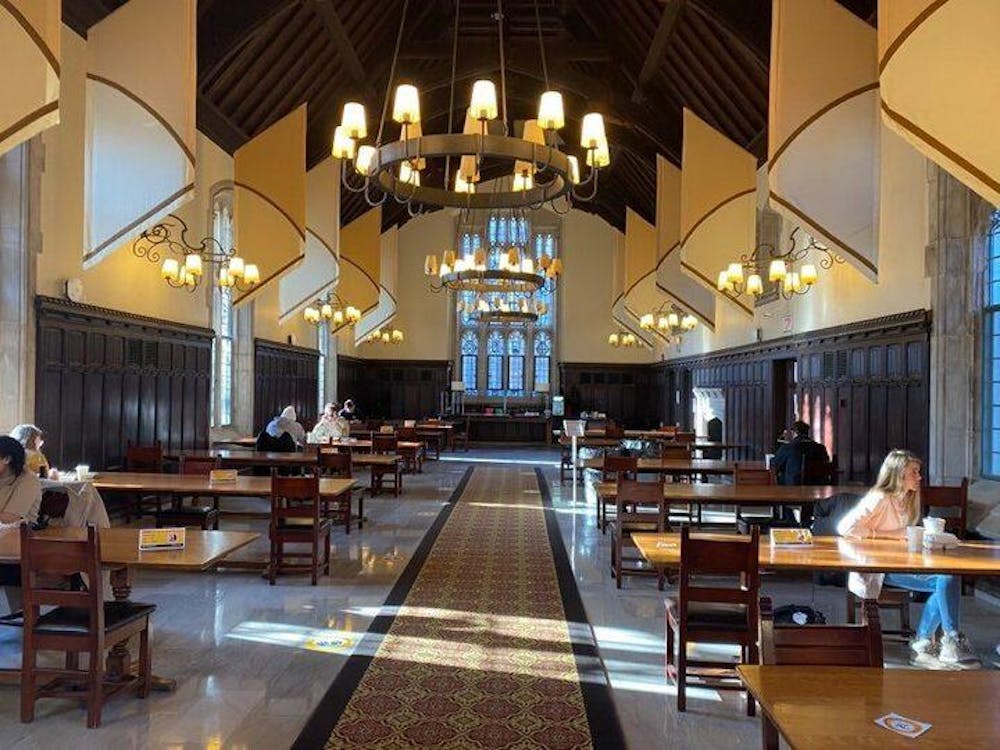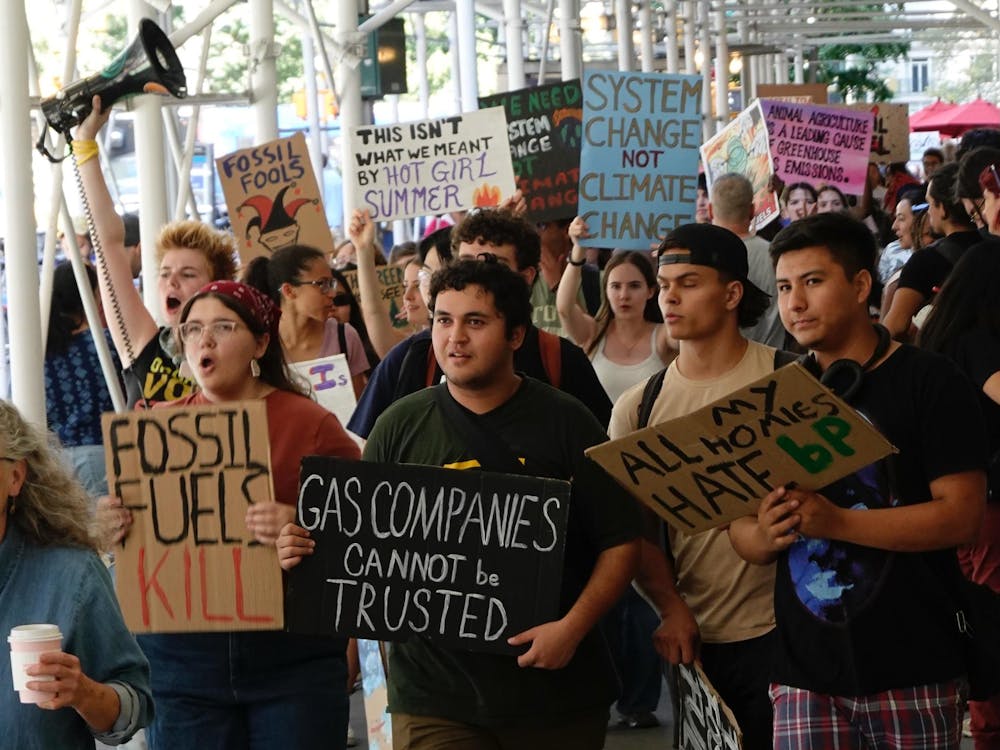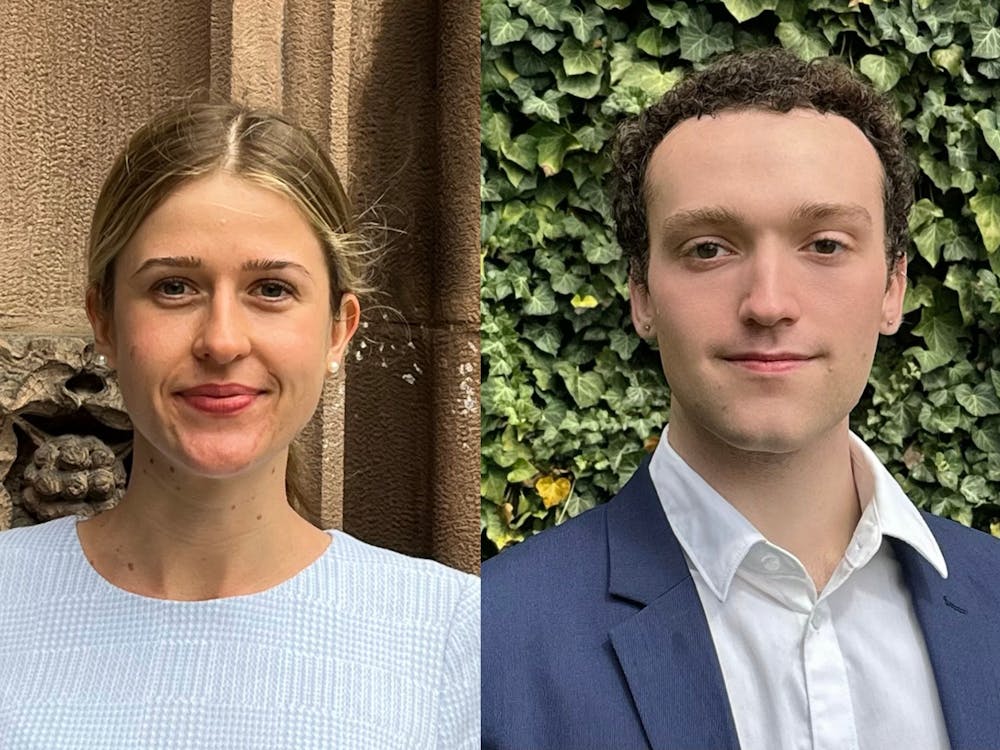Professor of psychology and public affairs Elizabeth (Betsy) Levy Paluck was named as one of the 24 recipients of the MacArthur ‘Genius’ Grant on Wednesday. The MacArthur Fellowship is a “$625,000, no-strings-attached award to extraordinarily talented and creative individuals as an investment in their potential,” according to its website. Being named a MacArthur Foundation Fellow is an extremely high honor, with an extensive nomination and selection process. Paluck is best known for her work with social norms and impacts of mass media on behavioral changes, with her experiments largely occurring in real-world environments.
The Daily Princetonian: First of all, a massive congratulations on becoming a MacArthur Foundation Fellow. What does this recognition mean to you?
Betsy Levy Paluck: For me, the recognition is so special because my work is very deeply collaborative, and so I think of it as a reflection of work that I’ve done with so many different people, both graduate students and colleagues. But then outside of academia, people who work in NGOs and in schools, in communities, and activist networks and the people on the ground who we hire to be interviewers and drivers. It takes a lot of people to do the research that I do, and so it feels like a communal, collective celebration. And then I guess, on another level, it’s exciting. It’s, as some people have put it, a really great week for behavioral science because it feels as though this award goes out to people who are doing this kind of work more generally. Dick Thaler just won the Nobel Prize for his work in behavioral economics and that was very inspiring to me and a lot of people who do this work, too. So, it’s just meaningful on all of those different levels.
DP: Your work with social norms and the impact of mass media on behavioral changes has led you to conduct studies in real world environments rather than in the laboratory, taking you to places such as Africa. What is the significance of working in these environments to your work?
BLP: It’s fun! I get a lot of meaning and motivation from being in these settings because you have the feeling of working more directly on the problem by working with the people who are actually doing that work. So it’s motivation and inspiration by association. I’ve learned from our partners who are tackling issues of prejudice and violence and corruption. But I have to come back to the point that it’s really fun to do this work. I enjoy meeting all of the people who I get to meet in these field sites, and I learn an enormous amount from them. I’ve been so privileged to be able to work in field sites.
DP: With that in mind, where do you hope your work takes you next?
BLP: We have right now a lot of projects going on at once. I run a research group of graduate students and also of Princeton undergrads who are fabulous and who take our model of engaged behavioral science research and they bring it to so many different places. One graduate student has just wrapped up a project with me in China, and another pair of former students, who are now off in their own jobs, and I just finished a paper in Nigeria. Another student of mine, who is also in her own job, and I just finished a paper in Colombia, and that was actually in collaboration with our provost, Debbie Prentice. So we have this really dynamic group and there are a lot of different things going on. It could be hard to keep track of except everybody is just so great who I work with and we’re all really deeply committed to the work.
DP: In addition to being a professor of psychology, you are also a professor of public affairs in the Wilson School. How has your time spent between these two disciplines impacted your projects or directed your focus?
BLP: My work is very interdisciplinary, and that’s why I love being at the Woodrow Wilson School because it constantly brings me into contact with people who are not just trying to apply these ideas that are coming from our research. But then my colleagues are in political science and sociology and economics and engineering even, so that really affects my day-to-day life and the conversations I have in the hallways and the groups I get to be a part of, that’s really great for me. It’s always been a really unique thing about Princeton that psychologists are so integrated into the policy school. And we have Danny Kahneman and Eldar Shafir to thank for that, but also all of the leadership of the Woodrow Wilson School thought in advance to bring psychologists in.
DP: How do you envision the MacArthur grant factoring into your future work?
BLP: Do more research, support students to do this kind of work, and reach out more and more to the public and to activists who are trying to create social change. That’s the broad strokes. I’ll be working on the details once I sort of wind down the celebration with everybody!
DP: Is there anything you are particularly excited about right now, more broadly, in the field of psychology and where things are going?

BLP: I’m excited about a lot of broad trends in psychology. I think we are becoming more engaged with real-world problems, and I think political and social developments in the past few years have heightened the demand for psychologists to engage. That’s really exciting. There are a lot of us who are ready to respond to that call and are excited to. But there is a lot to do in terms of living up to that and providing pragmatic, useful, informative research. So another trend that I’m really excited about is increasing transparency in the social sciences. I’ve been involved in that movement as well. That means things like making data more accessible, making the research process more spelled out so that other scientists, but also other people in organizations outside of the Academy, can go through the steps of how you found out what you found out. It’s really important that we do this, and I think it’s going to go hand in hand with making our science more applicable and useful to the world.









